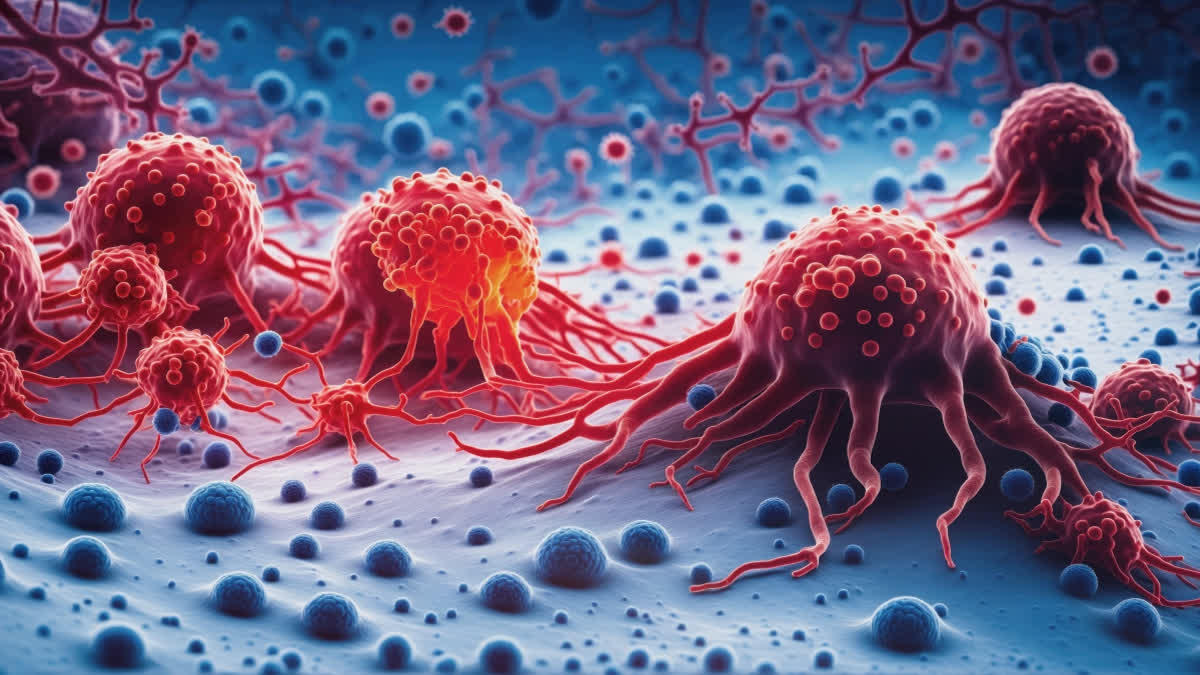New Delhi: The World Neuroendocrine Tumors (NETs) Cancer Day is observed on November 10 every year with an aim to raise awareness about this severe disease. Neuroendocrine cancer can affect multiple organs and presents unique challenges due to its complexity and often slow-growing nature. This day serves as a reminder for early diagnosis, education, and understanding to improve outcomes for those affected.
History and Significance
The World Neuroendocrine Cancer Day was established by neuroendocrine cancer organisations, patient advocacy groups, and healthcare professionals to provide a global platform to spotlight this under-recognised disease. It was in 2010, the world NET community steering committee created a proclamation for the first Worldwide NET Cancer Awareness Day. Since then, every year, November 10 is observed as World Neuroendocrine Cancer Day.
Events, informational campaigns, and educational materials distributed worldwide marks the day. Neuroendocrine tumour cancer develops from cells in the neuroendocrine system, which has roles in both the nervous and endocrine (hormonal) systems.
INCA & NET Cancer Day
NET Cancer Day is coordinated by the International Neuroendocrine Cancer Alliance (INCA). INCA is the global voice for patients with neuroendocrine cancer and genetic neuroendocrine tumours (NETs) and their caregivers. It aims to raise awareness about all types of NETs; push for scientific advancements with a focus on identified unmet needs; and to provide a platform for global collaboration to address the many challenges NET patients and the medical community face, in securing a timely diagnosis and accessing optimal treatment, support and care.
On November 10, INCA members from around the globe promoted campaign resources in social media increasing awareness about this often misdiagnosed form of cancer.
What Is Neuroendocrine Tumours Cancer
NETs are a rare but diverse group of tumours that can arise in many organ systems. They are most commonly found in the lungs, rectum, small bowel, stomach, and pancreas. The incidence of NETs is rising globally, with the highest rates of increase in the USA, Canada, and Norway. The NER tumours constitute only 0.5% of all cancers.
Theme For World Neuroendocrine Cancer Day 2024
This year’s World Neuroendocrine Cancer Day theme is 'Easily missed: Take a closer look at neuroendocrine cancer'. It aims to highlight the common symptoms that can be mistaken as different conditions, but that can be an indication of neuroendocrine cancer.
Early Detection Necessary
Early neuroendocrine cancer diagnosis is essential for improved outcomes. However, it takes approximately five years from initial symptoms to actual diagnosis worldwide. Because of the delay, 46% of patients are diagnosed with advanced-stage neuroendocrine carcinoma, making a cure less likely.
Measures for better outcomes with NETs
Some of the measures like knowing the symptoms, regular medical check-ups, genetic counselling for high-risk individuals and lifestyle and health management.
Although maintaining overall health can improve resilience against various diseases, a balanced diet, regular exercise, and managing stress contribute to a healthy immune system, which can play a role in detecting and managing tumours.
Common signs of NET cancer include abdominal pain, diarrhoea, skin flushing, respiratory issues, and unexplained weight loss. Patients who experience these symptoms persistently should seek medical evaluation.
Neuroendocrine Tumors Cancer In India
According to renowned neurosurgeon Dr Jayakrishnan the incidence of NET in India will be around 3.7 per lakh population. The incidence is gradually increasing in India because of increased detection rates.
"Data on the exact number of cases is not available as there is no population-based data. Our incidence data is based on reports from tertiary care centres,” Dr Jayakrishnan told ETV Bharat.
He said that NET can occur anywhere in the body with a preponderance for the intestine, lungs, pancreas etc
"The cause of NET are changes in DNA due to various genetic and environmental factors. No single factor is specifically attributable. As the cause is not specific, preventive measures are lacking,” he said.
Asserting that early diagnosis is the key step, Dr Jayakrishnan, who is also the national joint secretary of the Indian Medical Association (IMA) said, "Since the symptoms are vague, a high index of suspicion is required. Those who have a family history of multiple endocrine neoplasia should undergo periodic screening."
According to Dr Jayakrishnan, prognosis depends on grading and stage of disease. "Grade 1 tumours have a five-year survival rate of up to 97% while it may be around 60% for grade 3. As the grade increases it is more cancerous. Staging is the spread of disease. As stage increases (more spread) cure rate decreases," DR Jayakrishnan said.
"Surgery, chemotherapy, radiotherapy, immunotherapy and hormone therapy are being used as per type, grade and stage," he added.



